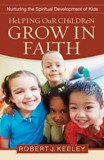Recently Glass Harp released a 2008 concert CD that, initially I was less than excited about. That was before I heard it. You see, I figured I’d heard all these songs before. I have the original three albums. I have Hourglass, their reunion CD. I have the Carnegie Hall Live CD, the With Strings Attached set and also the massive Stark Raving Jams and they’re OK. But none of them (with the possible exception of Carnegie Hall, recorded in the early 70s) really caught the excitement and the improvisational power of these three guys. I finally got to see them about five or 6 years ago and I was thrilled – they rarely tour together anymore. But Strings Attached was just too calm and too scripted. Stark Raving Jams was too unfocussed and the recording quality wasn’t great.
So when I saw that Live at the Beachland Ballroom was being released I thought that this was just another live Glass Harp album with the same songs (they mostly still play the stuff from their three original studio albums) and that it was totally redundant. I was wrong.
Live at the Beachland Ballroom is the one Glass Harp CD that you need to have. I haven’t heard Phil Keaggy playing with this sort of abandon and fire on a recording in years. And Glass Harp is not just Phil and a rhythm section – Dan Peccio and John Sferra are totally on target here too and the connection between these guys while they play is amazing. They’re totally in sync and the band turns on a dime. This is clear in a number of places on the album but no more so than in the nearly 16-minute “Beachland Jam.” The band jumps in and out of multiple jams, mostly started by Phil on guitar but within seconds Dan and John jump in and join him. Vocally, they’ve never been better and instrumentally they’re at the top of their game. This is probably the best Glass Harp album yet. Buy it here.


